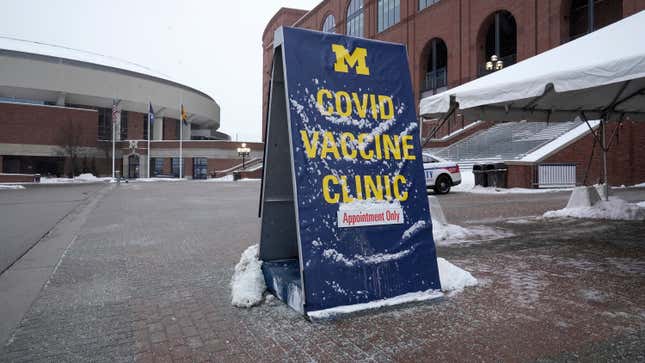
Real-world data is offering hope that mRNA vaccines are highly effective at limiting infection and presumably transmission of the coronavirus, in addition to their already-known ability to prevent symptoms of covid-19. The findings, based on research from Israel and elsewhere, are good news for containing the pandemic sooner rather than later.
A study published in the Lancet last week looked at healthcare workers at Israel’s Sheba Medical Center. The study compared rates of covid-19—both with symptoms and without—among workers who received the Pfizer/BioNTech vaccine or not. As other research has shown, people were significantly less likely to contract covid-19 after receiving the first of two scheduled doses.
Within two to three weeks following the first dose, the risk of having symptomatic covid-19 was reduced by 85%. Importantly, the risk of covid-19 in general, including asymptomatic infection, in which a person has the virus but doesn’t feel sick, was also reduced by 75% in that same period, based on regular PCR testing. That’s crucial, because even people with silent infections can still transmit the virus to another person. But if a vaccine is largely preventing people from being sick and from carrying enough of the virus to test positive, that means it’s also lowering the risk of virus transmission from a vaccinated person to others.
The results of another recent study, not yet published, seem to show an even greater advantage for fully vaccinated people in Israel. Based on data analyzed by the Israeli Health Ministry, Reuters reported last Thursday, the risk of infection was reduced by 89% in people who received two doses of the Pfizer/BioNTech vaccine.
In the U.S, a preliminary study released last week by researchers at the Mayo Clinic points to similar benefits for the Moderna vaccine. They looked at workers at the Mayo Clinic and associated health care centers who had received the first dose of an mRNA vaccine at least 36 days prior. Compared to their unvaccinated colleagues, the workers were 89% less likely to test positive for covid-19 after they received both doses.
Many experts have been cautious about claiming that covid-19 vaccines will reduce transmission, arguing that the data simply wasn’t available yet to know for sure. But other experts have argued that it would be very unusual for a vaccine effective at preventing illness to have no effect on reducing transmission and that it’s not helpful to leave people worried about an unlikely outcome. In any case, the evidence from these and other studies should be reassuring to everyone.
More research will continue to be done to understand just how effective the mRNA vaccines are at preventing transmission. Other vaccines are based on different technologies, and some are less effective than the mRNA vaccines at preventing illness, so they’ll need to be studied closely as well. And the spread of new coronavirus variants may complicate matters, since at least some vaccines have been shown to be less effective against certain variants.
All that said, this is undoubtedly good news if you’re hoping for an end to the pandemic as swiftly as possible. Vaccines that prevent illness and transmission of covid-19 will only make it harder for the coronavirus to spread as more of the population is vaccinated, and they should speed up the time it will take for life to return to some semblance of normalcy.